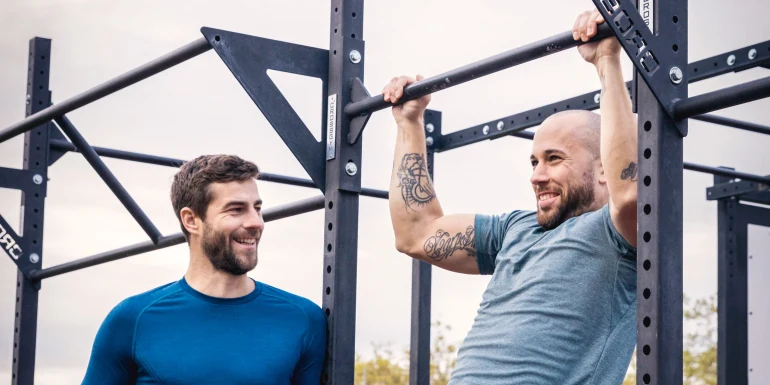
Knee arthroscopy – yes or no?
A knee arthroscopy is an option for treating knees affected by arthritis. But is this surgery the best option? We provide the information so you can make up your mind.
Do you feel ongoing knee pain and restricted movement without an obvious cause like a fall or knee injury? These could be the first signs of osteoarthritis – a gradual breakdown of cartilage in the knee joint.
One option with osteoarthritis is to have a knee arthroscopy. This procedure is a form of keyhole knee surgery. An instrument called an arthroscope is inserted through small incisions. The aim of the operation is to flush out loose pieces of cartilage or to smooth rough surfaces of the cartilage in the knee joint. Parts of the meniscus may also be removed.
Is it worth having a knee arthroscopy?
There are no definitive statements available on the risks involved in having a knee arthroscopy. It is known, however, that long-term benefits in relation to pain and mobility are negligible. The alternative is to lose weight, strengthen the knee muscles and treat it with anti-inflammatory medication.
The Harding Center for Risk Literacy at the University of Potsdam has summarised the potential benefits and adverse effects of knee arthroscopies based on scientific studies:
Does the pain improve after having the operation?
If you compare 100 people who had the operation with 100 people who were not operated on, 79 of the former and 67 of the latter reported a minimal reduction in pain after three months. After 12 to 24 months, however, there was no difference between the two groups.
Is mobility improved by having the surgery?
65 out of 100 people who had the operation reported at least a slight improvement in mobility after three months. In contrast, 52 out of 100 people who were not operated on reported a slight improvement in mobility. Here, too, there was no longer any difference between the two groups after 12 to 24 months.
What risks are involved with having a knee arthroscopy?
A knee arthroscopy is a surgical procedure and therefore also has some inherent risks. Although scientists cannot name any figures owing to the insufficient amount of available evidence, you still have to expect possible complications like thrombosis, infections and nerve damage.
Conclusion
Ultimately, everyone has to decide for themselves whether a knee arthroscopy makes sense given these facts. We hope you now have a clearer overview of this complex issue.
Would you like to know more about arthritis or knee pain? Our health advisors provide you with helpful information and specific recommendations.
Health consultation service 058 340 15 69
Monday to Friday, 8.00 a.m. to 8.00 p.m. (local rate).
Helsana health consultation is a free service for everyone with Helsana supplementary insurance. By calling health consultation, you confirm that you accept the terms of use and the privacy policy.


Newsletter
Find out more about current health issues every month and get all the information you need about our attractive offers from all Helsana Group companies * delivered by e-mail to read whenever it suits you. Our newsletter is free of charge and you can sign up here:
We did not receive your information. Please try again later.
* The Helsana Group comprises Helsana Insurance Company Ltd, Helsana Supplementary Insurances Ltd and Helsana Accidents Ltd.